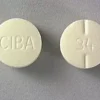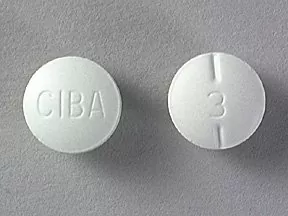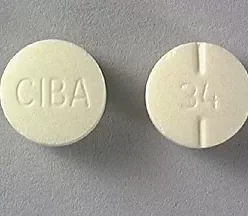$335.00 – $1,204.00
Ritalin 10 mg is a prescription medicine that is used to treat Attention-deficit hyperactivity disorder (ADHD) and narcolepsy. Narcolepsy causes sleepiness problems. It is a combination of two medical substances known as Hydrochloride &Methylphenidate. This medication stimulates and changes the way your brain functions. You can buy this medicine at a low price.
Ritalin 10 mg is an opioid medicine that is used to treat the symptoms of Attention Deficit Hyperactivity Disorder (ADHD). It works in the brain and central nervous system by activating neurotransmitters in the brain and helping to withdraw from the disorders. This medication belongs to a stimulant drug class that uses to treat narcolepsy.
Ritalin 10 mg Dosage Come In:
Brand name Ritalin, comes in the tablets form of 5 mg, 10 mg, and 20 mg, as does. Ritalin 10 tablets contain the active ingredient methylphenidate hydrochloride. Methylphenidate hydrochloride is a central nervous system stimulant.
Ritalin 10 mg is round in shape flat-faced and its color is pale blue. Bevelled-edged tablet scored and imprinted “AB” on one side with “CIBA” on the other, containing 10 mg of methylphenidate HCl.
How To Take Ritalin 10 mg?
Your doctor will decide the dose according to the patient’s medical need and response to the taking medication. Usually, the dose is started low and increased gradually to the dose that works best for the person i.e. starting dose for this medication is 5 mg to 10 mg. Ritalin 10 mg twice daily for the regular release tablets. But the sustained release tablets are usually taken once daily. Above the dose of Ritalin 60 mg daily is not recommended. If symptoms worsen or if side effects occur, contact your doctor for further instruction.
Take this tablet with or shortly after a meal or snack. If you are taking the Ritalin 10 mg SR (Sustained-Release) tablets, swallow the medication whole without crushing or splitting the tablets.
Different factors can affect the dose of medication that a person needs, such as body weight, other medical conditions, and other medications. The doctor has recommended a dose different for different factors. Never change the dose that you are taking the medication without consulting your doctor.
Store Of This Medication:
You should store this medication in a cool dry place at room temperature, protect it from light and moisture, and keep it out of the reach of children. Do not store Ritalin 10 or any other medicine, in the bathroom or near a sink. Keep your medicine in the original container for further use. Do not leave it in the car or on window sills.
Ritalin 10 mg Effect Duration:
The peak effects from central nervous system stimulants are felt quickly and then dissolve in the blood rapidly. The Immediate-Release form of Ritalin lasts about 4–6 hours before a person needs another dosage, whereas the Extended-Release form of the dictation may last anywhere from 10 to 14 hours.
How Long Does Ritalin 10 mg Stay in Your System?
This medication stimulates the central nervous system and takes a few hours to use to help with Attention Deficit Hyperactivity Disorder and narcolepsy (sudden or excessive daytime sleepiness), as well as for other uses. Its effects can feel within 1 hour. For instance, taking Ritalin 10 mg will release more slowly in the person’s body. Immediate-Release forms of the drug if the medication takes orally. The followings are the medication that stays in the system:
Ritalin 10 mg In Body System:
- Generally, urine screens can detect the presence of Ritalin 10 mg for one to three days after using this medication.
- In general, saliva tests can detect the presence of the drug for one to three days after use.
- Blood tests are not commonly used to screen for Ritalin 10 mg.
- The drug may be detectable in hair follicles for up to 30 days after use.
The most salient factors are such as age, gender, body mass, metabolism, use of alcohol, etc. that influence how long the medication remains in a person’s system.
Missed Dose & Over Dose:
It is important to take Ritalin 10 mg exactly as prescribed by your doctor. If anyone misses a dose, take it as soon as possible and continue with your regular schedule. Avoid taking this medication late at night in the day, as it may cause difficulty sleeping. If it is almost time for your next dose, skip the missed dose. Take this dose and continue with your regular dosing schedule.
Do not take a double dose to make up for a missed one. Contact your doctor or pharmacist for advice if you are not sure what to do after missing a dose. Go to the doctor if you find anyone experience uneasy after taking two doses accidentally.
Who Should Not Take Ritalin 10 mg Pills?
There are so many barriers that can get in the way. Many people worry about side effects, or they just don’t like the idea of needing to take medicine. The doctor prescribes him or her to take it by noticing the health condition of the doctor.
- Do not take this medication:
- If you are allergic to methylphenidate or any ingredients of the medication.
- in the last 14 days if the patient is taking a monoamine oxidase (MAO) inhibitor (e.g., phenelzine, tranylcypromine).
- The patient has anxiety, tension, or agitation.
- Glaucoma (increased pressure in the eye)
- Heart disease patient.
- Moderate-to-severe high blood pressure.
- An overactive thyroid gland.
Before taking this medication you should go to your doctor and tell him or her if you have the above disease.
Ritalin 10 mg Side Effects:
Many medications can cause side effects i.e. an unwanted response to a medication when you take it in the initial period. Side effects can be mild or severe, temporary or permanent when the person takes it for a long period or the medication can not suit her body.
If you are concerned about side effects, discuss the risks and benefits of Ritalin 10 mg with your doctor.
Everyone can not experience the side effects of the medications listed below who takes this medication. Many of the common side effects can manage and they may go away on their own over time.
Common side effects are as such agitation, nervousness, or anxiety, bedwetting, diarrhea,
changed ability or interest in sexual activity, cough, hair loss, grinding teeth, increased sweating, headache, constipation, dry mouth, nausea, joint pain, restlessness, loss of appetite, trouble sleeping, vomiting, weight loss, muscle pain or cramps, sore throat, stomach pain, runny nose, skin rash, or itching (mild).
It is remembered that most of these side effects listed below don’t happen very often, they could lead to serious problems if you do not seek medical attention. Your doctor may be able to advise you on managing side effects.
Check with your doctor as soon as possible if any of the following side effects occur:
All these symptoms listed below should not avoid, stop taking Ritalin 10 mg. Seek immediate medical attention if any of the following occur otherwise it may life threaten:
Abnormal thoughts or behavior (aggressiveness, hostility), chest pain, fast heartbeat, increased blood pressure, mood changes, manic behavior (e.g., paranoia, unusual or inappropriate sense of excitement), palpitations (feeling your heart beat quickly or irregularly), signs of anemia (low red blood cells; e.g., dizziness, pale skin, unusual tiredness or weakness, prolonged dizziness, headache, stiff neck, weight loss, or listlessness), slowed growth, spasm of jaw muscles (making it difficult open your mouth), symptoms of depression (e.g., losing interest in your usual activities, feeling sad, having thoughts of suicide), shortness of breath), itchy rash, signs of infection (symptoms may include fever or chills, severe diarrhea, shortness of breath, symptoms of liver damage (e.g., yellow skin or eyes, abdominal pain, loss of appetite, pale stools, dark urine).
Contact your doctor if you notice these side effects are severe or bothersome.
Drug Warnings:
All medications come with potential risks and benefits same as Ritalin 10 mg has. If you have concerns about a medicine you’re taking, the doctor warns about the medication before taking it.
Warnings For Special Populations:
Special populations include women, children, the elderly, pregnant, and patients with concurrent disease states.
Use In The Elderly:
The doctor never recommends use in patients aged above 65 since the risk of adverse events is significantly high.
Use In Children:
Below 6 years old children can not take Ritalin 10 mg of the safety and efficacy of this medication.
Pregnancy:
This medicine does not recommend for use in pregnant women without consulting the doctor unless necessary. Your doctor will determine the best advice for you.
Breast-Feeding:
This medicine does not recommend for use in breastfeeding women unless your doctor feels necessary of it. Your doctor will determine the best course of treatment after checking up on the benefits and risks associated with the use of this medicine.
General Warnings:
Other Medicines:
This medicine may interact with many other medicines and may cause severe adverse effects in the system. For this reason, it is advised that you inform the doctor about all your current medicines including any herbs and supplements before beginning therapy with this medicine.
Heart Diseases:
This medicine should not use with active heart diseases or patients with a history of heart diseases since the risk of adverse effects or worsening of the patient’s condition is significantly high.
Psychiatric Disorders:
Ritalin 10 mg should use with caution in patients with an active psychiatric disorder, especially in children and adolescents.
Seizure Disorders:
This medicine should use with caution in patients with an active seizure disorder or patients with a history of seizure disorders. If the worsening condition of the patient is significantly high, the doctor suggests an appropriate dose or replacement with a suitable alternative.
Growth Suppression:
The use of this medicine may slow growth in children. The doctor advises the patient a regularly monitor the child’s height and weight while this medicine is taken. Ritalin 10 mg use should be discontinued if the child is not gaining height or weight.
Surgeries:
Tell to your doctor if you use any medication to the doctor before surgery. The use of this medicine should stop a day before the planned surgery because interacts with the anesthetics causing a sudden rise in the blood pressure levels.
Driving Or Operating Machinery:
The use of Ritalin 10 mg may cause blurred vision, dizziness, drowsiness, etc. in some patients. It is advised that you do not perform any activities such as driving a vehicle or operating machinery if you experience any of these symptoms during treatment with this medicine.
Drug Interactions:
Taking Ritalin 10 mg while having certain medical conditions can cause a drug interaction. There may be an interaction between Ritalin 10 mg and any of the following:
Drug-Drug Interactions:
Ritalin 10 mg Tablet can interact with anti-depressant medications i.e. bupropion, escitalopram, amphetamines (e.g., dextroamphetamine, lisdexamfetamine), antacids (aluminum hydroxide, calcium carbonate, magnesium hydroxide), antipsychotics (e.g., chlorpromazine, haloperidol, quetiapine, risperidone), Methadone, Neratinib, Oxycodone, Codeine, Daclatasvir, Hydrocodone, hydralazine, linezolid, lithium, Tramadol, Suboxone.
Drug-Food Interactions:
A person taking Ritalin 10 mg should avoid taking alcohol which increases this medicine’s actions or side effects.
Drug-Disease Interactions:
Make sure this medication is not safe if you have any other disorder. Tell clearly your doctor if you have agitation, cardiac disease, glaucoma, hypertension, liver disease, substance abuse, tics, hypertension, seizure disorders, bipolar disorders, psychiatric disorders, psychotic disorders, seizure disorders, or hematologic toxicity. When a person takes Ritalin 10 mg without consulting the doctor, it can be dangerous.
Before taking Ritalin 10 mg, a person should tell their doctor or pharmacist about other medications they are taking. The doctor or pharmacist can advise about possible interactions with Ritalin.
| Quantity | 90 pills, 180 pills, 360 pills |
|---|
Related products
Ritalin



